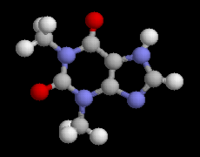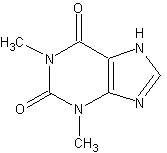Imagine trying to breathe through a pinhole. That's the reality when you suffer a severe asthma attack. More and more people are finding themselves in just that position. In the past decade, the number of people with asthma has climbed more than 60 percent. Yearly deaths in the U.S. have doubled from less than 2,000 in 1978 to more than 4,500 today.
More accurate reporting explains some of the gain, but researchers suspect other factors. Among them: outdoor and indoor air pollution and poor access to health care in inner cities.
But asthma experts are changing this bleak landscape for the better. With today's management, patients now are better able to control their conditions than at any time in the past, says Michael Kaliner, M.D., Medical Director for the Institute for Asthma and Allergy at the Washington Hospital Center in Washington, D.C. Here's the latest thinking.
What causes asthma? In people with asthma, the lung's airways narrow, swell, and clog with mucus, producing wheezing, coughing, or troubled breathing. In mild cases, asthma is uncomfortable. In severe forms, asthma leaves you gasping for each breath.
For 90 percent of children and more than half of adults with asthma, the disease is allergic in nature. (The causes for nonallergic asthma are not established.) Common allergic triggers are pets, pollens, dust mites, mold, and feathers. Attacks may occur after exposure to irritants (cigarette smoke, strong odors, household cleaning products, workplace chemicals), viral respiratory infections (colds, flu), drugs, sudden changes in weather, and emotional stress. Asthma attacks vary widely in intensity and duration. Symptoms often erupt within 10 to 15 minutes after exposure to a trigger and can last for hours or days. More than half of the people who have short duration attacks also suffer a delayed reaction--chest tightness, wheezing, and other symptoms--four to eight hours later that can last for days, says Gail Shapiro, M.D., clinical professor of pediatrics at the University of Washington. Tell your doctor if you experience these delayed reactions.
More than three-quarters of people with asthma also are susceptible to attacks during exercise. Wheezing and coughing develop after five to l 0 minutes of strenuous efforts or shortly after exercise ends.
Nevertheless, exercise is encouraged because it aids overall health, says Dr. Shapiro. Children especially benefit from the boost in self-esteem that goes along with participation, she says.
To prevent exercise-induced reactions, doctors encourage patients to be selective about which activities they participate in. Because cold, dry air triggers symptoms, skiing and ice skating may cause problems. Swimming, with its warm, humid environment, is ideal. Stop-and-go sports like baseball usually are better choices than constant-action sports like soccer.
Yet few activities are off-limits if asthma is under control, say experts. Several medications, inhaled before exercise, prevent attacks. A l0-l5 minute warm-up period before exercise also limits wheezing and coughing.
Control and management. There is no cure for asthma, but accurate diagnosis and good management will stave off attacks. Doctors identify triggers by taking a thorough medical history. They may use skin tests or a blood test called RAST to diagnose specific allergies.
Asthma control starts with avoiding triggers. For those with allergies, it's vital to allergy-proof homes, says William Busse, M.D., professor of medicine at the University of Wisconsin.
That may mean parting with a pet or moving the animal outdoors. Bathing cat weekly will reduce cat dander, the number one cause of pet allergies. Other measures that help: avoid feather pillows, clean moldy surfaces often, and close windows in pollen season.
Pay special attention to taming house dust, which contains a tiny bug called a mite. Mite feces are a powerful allergen for many. Normal vacuuming doesn't eradicate mites. Remove carpeting altogether or treat it with a mite-destroying substance. Seal mattresses and pillows in plastic covers. Wash the patient's bedding often in very hot water.
Studies also link asthma in children to wood stoves and to cigarette smoke. Banish tobacco and other smoke-producers from your home.
"Cutting down on triggers is a top priority," says Dr. Busse. "It means you'll need less medication to control the disease."
In some cases, asthma patients benefit from immunotherapy, or allergy shots. Talk with your doctor if your problems arise from pollen, dust, or dander.
Drugs that work. Treatment for asthma has changed dramatically thanks to advances in understanding the disease. To attack the underlying causes of asthma, physicians have switched the primary goal away from treating attacks. Now, they put most of their energy into combating underlying chronic inflammation. Reducing inflammation decreases the twitchiness or hyper-reactivity of the airways, preventing flare-ups.
A National Institutes of Health panel of experts recommends anti-inflammatory drugs to be the first line of therapy. Today, the arsenal of medications, all of which require prescriptions, looks like this:
* Beta-agonists, such as albuterol (Proventil, Ventolin) and metaproterenol (Alupent), relax smooth muscles surrounding the airway and offer immediate relief for acute attacks. They are commonly supplied by inhalers.
Persons with mild asthma--brief, intermittent symptoms no more than a few times a week--may be able to control their conditions solely with use of these betaagonists, says Joann Blessing-Moore, M.D., associate clinical professor at Stanford University. Salmeterol, a new, 12-hour version awaiting FDA approval, promises stronger, longer-acting relief
Patients with serious conditions need to be under a doctor's care and should be careful not to develop an overreliance on beta-agonist drugs for short-term relief If you have an increasing need to use your beta-agonist inhaler, it could be a warning sign of worsening disease and might indicate a need for anti-inflammatory drugs, Dr. Blessing-Moore says. In any case, keep taking medication until talking to your physician.
* Theophylline (Theo-Dur, Theo 24, and others) also quells acute attacks, but is used less frequently now. Related chemically to caffeine, it can cause intestinal upset and jitteriness, and a person's blood levels must be monitored closely to prevent side effects. Effective for up to 24 hours, theophylline may help patients with nighttime asthma.
* Anti-inflammatory drugs, used daily, are essential for patients who use betaagonists more than 2-3 times a week, says Dr. Blessing-Moore. Unlike drugs that simply quell symptoms, these medications help heal the lungs and may take several weeks to work. Once anti-inflammatories stabilize a condition, patients often don,t require round-the-clock relief from drugs like beta-agonists and theophylline.
Three anti-inflammatories are used commonly:
Cromolyn sodium (Intal) inhibits the release of chemicals involved in airflow obstruction. Considered one of the safest asthma drugs. it's often the first choice for children as well as adults who need medication, says Dr. Blessing-Moore. However, it may need to be supplemented by other drugs. Minor side effects include a dry or irritated throat and cough.
Nedocromil sodium (Tilade), an inhaled, anti-inflammatory agent, became available last spring. Quicker-acting than cromolyn, it may also be more effective for mild to moderate cases, Dr. Blessing-Moore says.
Corticosteroids (Beclovent, Prednisone, and others), not to be confused with muscle-building anabolic steroids, are the most potent anti-inflammatories. Traditionally reserved for the most serious cases, corticosteroids taken orally or intravenously risk severe side effects, including ulcers and hypertension. Newly developed inhaled versions have a lower risk of side effects, making the drugs suitable for wider use. "Corticosteroids aren't used enough," Dr. Kaliner says. "They could have a dramatic impact."
A promising practice. Asthma experts urge those with moderate-to-severe asthma to monitor their breathing capacity every day with a home peak flow meter. The simple device (under $30 at pharmacies) can be used by children as young as age four to measure respiratory flow. Monitoring can alert patients to breathing difficulties before symptoms appear.
With early signals, asthmatics can adjust medicine and activities accordingly, says John Weiler, M.D., professor of medicine at the University of Iowa. Experts believe that better self-monitoring might prevent many fatal attacks, he says.
Incorrect use of inhalers also handicaps many asthma patients. Only about half of patients follow the specific instructions for proper use of their inhaler, reports a survey of physicians. Follow instructions on inhalers closely and be sure to use an extension tube with them.
A bright future. Not long ago, people with asthma accepted restrictions as a way of life. But few limitations are necessary for most patients now. The NIH panel reports that if you have asthma, your goal should be to sleep through the night, breathe easy each morning, go to work or school regularly, participate fully in physical activities, avoid hospitalizations and emergency-room visits, and avoid significant side effects from asthma drugs.
"The goal should be to function normally, be active, and enjoy life to the fullest," says Dr. Weiler.
For more information. To learn more about asthma, contact:
* Allergy and Asthma Network/ Mothers of Asthmatics has pamphlets, a newsletter, and resources for families 800/878-4403.
* American Academy of Allergy and Immunology, a professional organization for allergists, offers free packets of information on allergies and asthma and a 24-hour referral line for board-certified physicians. 800/822-2762.
* Asthma and Allergy Foundation of America has books, pamphlets, and videotapes. It has 11 chapters and a nationwide support-group network. 800/7-ASTHMA.
* National Jewish Center for Immunology and Respiratory Medicine has nurses who will answer questions about asthma and refer you to recommended physicians. 800/222-LUNG.
* Your local American Lung Association.
COPYRIGHT 1994 Meredith Corporation



